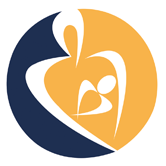Nominations for Position: President Elect
Evette van Niekerk (South Africa)
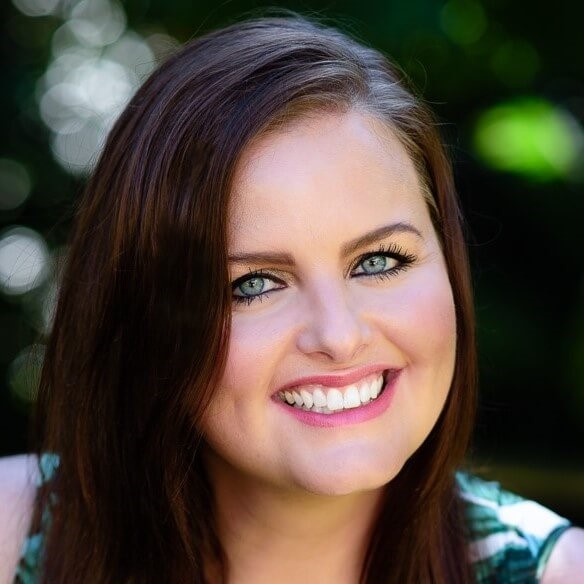
Senior Lecturer in Therapeutic Nutrition
Stellenbosch University, South Africa
It is a great privilege and honor to be nominated as a candidate for President Elect of the International Society for Research in Human Milk and Lactation (ISRHML). I have worked in the field of nutritional sciences for over 17 years and have made influential contributions to infant and young child nutrition research. These include the impact of probiotics in an HIV-exposed very low birth weight infant on the occurrence of Necrotizing Enterocolitis (NEC), body composition, growth and nutritional intake of preterm infants, the gut microbiome and Human Milk Oligosaccharides (HMO). From this research I am in the process of filing for a patent that will assist in the treatment of these fragile infants. I have served on several ISRHML committees since 2014, including the local organizing committee co-chair for the bi-annual ISRHML conference that took place in March 2016. Hosting the conference in Cape Town, South Africa, attracted new delegates from Africa and South Africa, and highlighted the profile of the society to academics, researchers, and practitioners from the continent. The organizing and fundraising efforts for this prestigious event was fulfilling experience, showcasing the importance of diversity and inclusivity within ISRHML. I have since served as an Executive committee member (2016-2020), ISRHML/FLRF Trainee Expansion Program (TEP) Scientific Review Board (SRB) (2016-2018), TIG advisor (2018-2019), and the Strategic planning committee (ISRHML) 2021. I firmly believe that the embracement of new science, knowledge exchange and recruitment of new members makes ISRHML the pioneers in research in human milk and lactation and I would be honored to serve as the president-elect to further promote these activities.
Dr Evette van Niekerk is a Senior lecturer in Therapeutic Nutrition in the Division of Human Nutrition, Department of Global Health, Faculty of Medicine and Health Sciences, Stellenbosch University. She has worked in the field of nutritional sciences for over 17 years. Since her appointment at Stellenbosch University in 2008 she has actively pursued her research interest in Maternal, Infant and Young Child Nutrition, the gut microbiome, breastmilk, and body composition. She has published her research in national and international journals. She is a member of the International Society for Research in Human Milk and Lactation (ISRHML) (where she served on several committees) and The Allergy Society of South Africa. She also serves as an editorial board member for Breastfeeding Medicine and reviews for national and international journals. She is active in various committees/working groups. Her research findings have led to the development of a medical device that is being patented. Funding awards have been received by the National Research Foundation, the Medical Research Council, Technology Innovation Agency (TIA), University Technology Fund (UTF), Early Career Development and other.
Carol Wagner (USA)
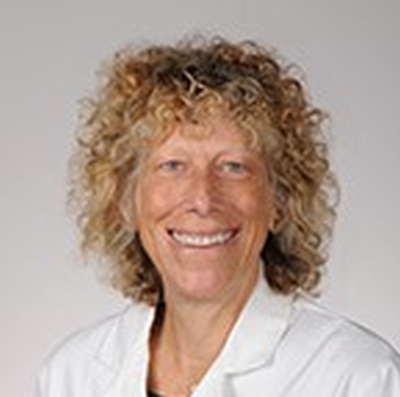
Professor, with Tenure
Medical University of South Carolina
My decision to stand for President Elect and to serve the International Society for Research in Human Milk and Lactation in the coming years is a direct extension of my passion for human milk research and ISRHML. I have been a member of ISRHML since 1995 when I was elected to the Society. I keenly remember my first ISRHML meeting in Plymouth, MA in 1997, where I had the opportunity to meet and talk to some of ISRHML’s greats—Robert Jensen, Armand Goldman, Margit Hamosh, and Stuart Patton. It was a time of discovery for me that solidified my commitment and interest in human milk research. There was much discussion about aspects of human milk research that I had never imagined. For example, something that we consider common knowledge today—the importance of the milk fat globule membrane in signaling the recipient breastfeeding infant—was presented then and was revolutionary in its premise. I never looked at human milk fat in the same way again. I learned more in that meeting than any other I had previously attended, and it ignited a keen interest in human milk and lactation research that has now spanned three decades. My continued focus on maternal and neonatal nutrition and human milk research stems directly from those early exchanges, and I am acutely aware of the importance of mentorship and scientific exchange and the continued role that ISRHML plays in my own research and that of the Society’s members. The Society has emerged as the epicenter of human milk and lactation research. I have colleagues around the globe who share this perspective and who provide a kaleidoscope view of similarities and differences and the impact of environment and culture in various regions throughout the world. The caliber of research that is presented at ISRHML meetings and the intellectual and scientific exchange that occurs through the collaborations that form carries into every facet of human milk research. I see this as the core of ISRHML and its importance in the decade ahead requires the thoughtfulness of its members in embracing the ISRHML mission: Driving and sharing the highest quality research in human milk and lactation to advance knowledge and improve human health and wellbeing. If elected to ISRHML, working with Executive Committee and society members, I would seek to continue the effective leadership of those before me to preserve the Society’s place in human milk and lactation research through expansion of its membership through inclusion, not only of basic scientists, but also translational and physician scientists and trainees world-wide interested in nutrition and human milk research as a career. The stated need for foundation and government support of human milk and lactation research to provide security for scientists in the field is essential for continued growth of the Society and scientific discoveries, and I also see this as a priority. The development of tools that standardize and formalize research in the field through webinars and educational workshops additionally would be an emphasis. These aspects, when taken together, would facilitate a greater understanding of human milk’s effect on infant health not only for this generation but those to come. I am committed to helping achieve these goals.
Dr. Carol Wagner is an attending neonatologist and tenured Professor of Pediatrics at the Medical University of South Carolina. She has been a member of the International Society for Research in Human Milk and Lactation (ISRHML) since 1995 and was the conference organizer for the ISRHML conference on Kiawah Island, South Carolina held in 2014. She has been an active member of ISRHML. She also is an inaugural Fellow in the Academy of Breastfeeding Medicine, a member of AAP’s Breastfeeding and Perinatal sections, and has been elected to the Society of Pediatric Research, the American Pediatric Society, and the American Society for Nutritional Sciences. Her clinical activities as a neonatologist dovetail with her strong research interests in human milk, lactation and vitamin D. Dr. Wagner has written extensively about breastfeeding, growth factors and structure in human milk, and vitamin D requirements and its function in pregnant and lactating women. She has been PI and co-investigator on several grants involving vitamin D supplementation of pregnant and lactating women and their infants.
Dr. Wagner is committed to promoting innovative and collaborative research efforts in the areas of maternal and neonatal/infant nutrition and optimal nutrition throughout the lifespan, with a special interest in maternal requirements during lactation. As a member of ISRHML, Dr. Wagner works to honor the Society’s history as a vital catalyst of visionary ideas in the field through her collaborative research with many ISRHML members.
Link to publications: https://www.ncbi.nlm.nih.gov/myncbi/carol.wagner.1/bibliography/public/
Nominations for Position: Treasurer*
Jimi Francis (USA)

Assistant Professor
University of Texas, San Antonio
Prior to developing my passion for lactation, and human milk research, I earned my Bachelor of Science degree with a dual major of Home Economics and Finance, completing courses in personal, consumer, and corporate finance as well as accounting courses. This skill set enabled me to serve the Northern Nevada Breastfeeding Coalition (3 years) and the Nevada Foundation for Maternal, Infant, and Lactation Knowledge (10 years) (both non-profit organizations) in completing tasks that included preparing the annual budget for the Executive Committees using standard accounting practices, managing the funds raised through donations, grants, and fundraising activities, bank account reconciliation, and preparing quarterly and annual tax returns submitted to the United States Internal Revenue Service. After relocating to Texas, I served 2 years (2016-2017) as the Treasurer for the East Texas Breastfeeding Coalition completing tasks including bank account reconciliation, membership dues collections, and preparing the annual budget for report to the general membership. I have been a member of ISRHML for over 10 years. I have the skill set and historical experience needed to accomplish the Treasurer’s tasks as outlined in the Bylaws, and I would like this opportunity to give back to the Society I have enjoyed participating in so much over the years.
Dr. Jimi Francis completed a Master of Science degree at the University of Nevada in Reno with a focus on infant nutrition. She then went on to complete a Doctoral degree in Nutrition at the University of California in Davis with major professor Dr. K. G. Dewey. Jimi completed her Dietetics Internship through the University of Iowa with a Fellowship at the 96th Medical Group at Eglin Air Force Base.
Currently, Dr. Francis is an Assistant Professor at the University of Texas at San Antonio in the Department of Kinesiology in the College for Health, Community, and Policy. She continues to assist new families through her private practice as a Lactation Consultant and serves as a Trainer for the Texas Department of State Health Services Advanced Lactation Management Training for health care providers. During her time at the University of California at Davis, Jimi began her wet lab work on human milk composition and clinical lab work on lactation physiokinetics, which she continues today.
Currently, she has a team of volunteers, undergraduate, and graduate students assisting in research efforts to develop better understanding of lactation and human milk.
Diane Spatz (USA)
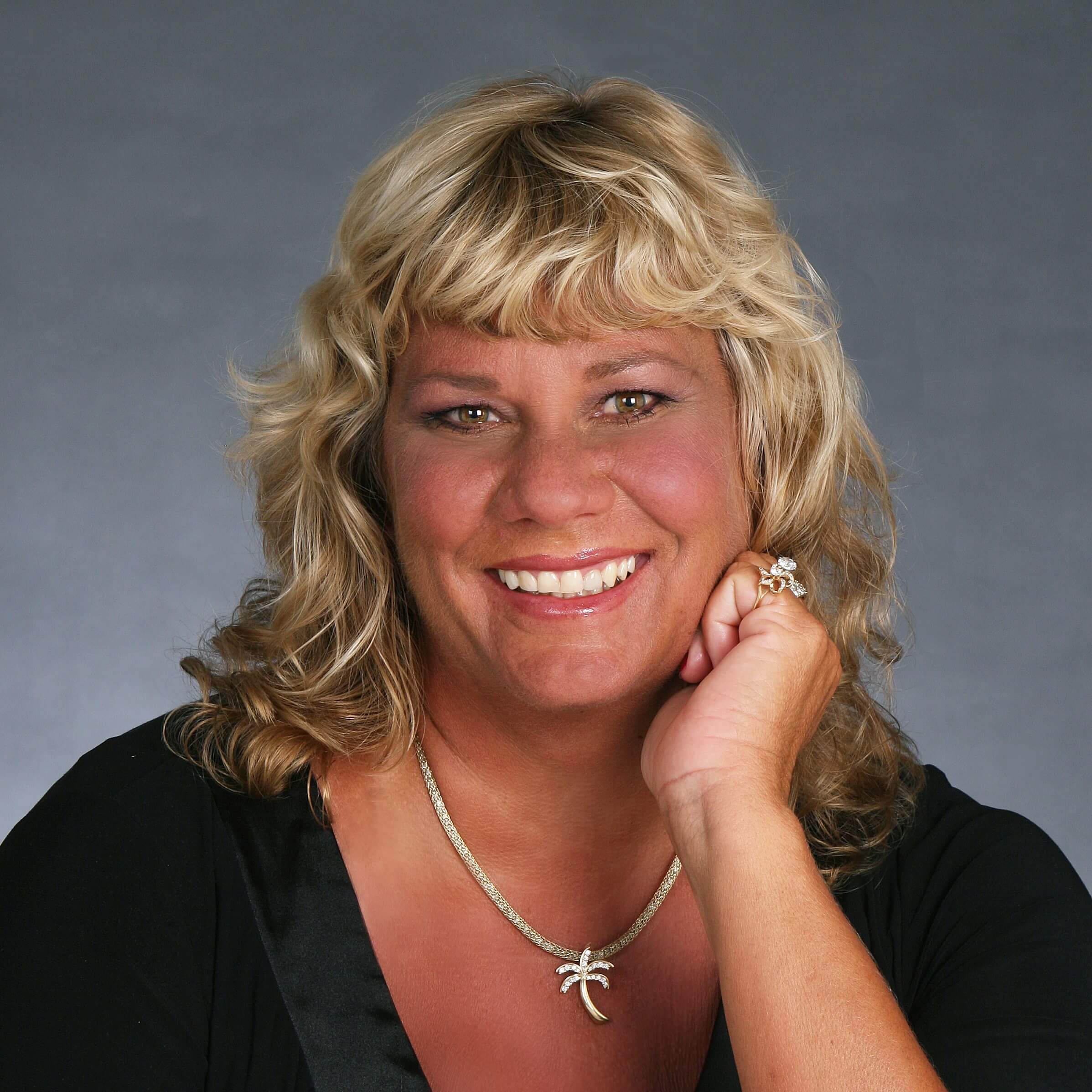
Professor of Perinatal Nursing & Nutrition
University of Pennsylvania
I have been a member of the International Society for Researchers in Human Milk & Lactation for over a decade and been active in the organization. I currently serve as member of the Executive Committee and have been asked to take over the role of Treasurer with Nancy Hurst’s retirement. I have experience serving at the local level as a treasurer for Sigma Theta Tau International (which is the international honor society for nursing.) I served as treasurer at Thomas Jefferson University Delta Rho Chapter from 1991 to 1998 and as treasurer at University of Pennsylvania Xi Chapter from 1999 to 2004. I have also served on a Board of Directors for the Phi Sigma Sigma Foundation from 1999 to 2004 and this foundation had over $1 million in assets at the time. With my past experience, I should be an asset to this position
Diane L. Spatz, PhD, RN-BC, FAAN is a Professor of Perinatal Nursing & the Helen M. Shearer Professor of Nutrition at the University of Pennsylvania School of Nursing sharing a joint appointment as a nurse scientist in lactation the Children’s Hospital of Philadelphia (CHOP) in the Center for Pediatric Nursing Research and Evidence Based Practice. Dr. Spatz is the Founder of the CHOP Lactation Program & Mothers’ Milk Bank.
Dr. Spatz is an active researcher, clinician, and educator who is internationally recognized for her work surrounding the use of human milk and breastfeeding particularly in vulnerable populations. Dr. Spatz has been PI or co-investigator on over 60 research grants, included several from the NIH. She has authored and co-authored over 200 peer-reviewed publications and written numerous book chapters related to human milk and breastfeeding. Dr. Spatz has authored or co-authored position statements for the International Lactation Consultant Association, the Association of Women’s Health Obstetric & Neonatal Nursing (AWHONN), the Society of Pediatric Nurses (SPN) and the National Association of Neonatal Nurses. She has also written the clinical practice guidelines on human milk and breastfeeding for AHWONN and SPN as well as a technical brief for the USAID on human milk and breastfeeding in developing countries.
In 2004, Dr. Spatz develop her 10-step model for human milk and breastfeeding in vulnerable infants. This model has been implemented in NICUs throughout the United States and other countries worldwide (Thailand, India, China, Mexico, Japan, Chile). Dr. Spatz has been named a prestigious “Edge Runner” for the American Academy of Nursing related to the outcomes of her model. Her nurse driven models of care are critical in improving human milk & breastfeeding outcomes and thus the health of women and children globally. Dr. Spatz is the only PhD prepared nurse appointed to the Congressional Task Force on Research Specific to Pregnant Women and Lactating Women. Dr. Spatz has also been appointed to a World Health Organization Task Force on human milk and milk banking globally. Dr. Spatz was elected to the Executive Committee of International Society of Research in Human Milk and Lactation in April 2020.
Dr. Spatz is also the recipient of numerous awards including: the Lifetime Achievement Award from the National Association of Neonatal Nurses, the Research Utilization Award from Sigma Theta Tau International and from the University of Pennsylvania: the Dean’s Award for Exemplary Professional Practice, the Expert Alumni Award and the Family and Community Department’s Academic Practice Award She is also the recipient of the Lindback Award for Distinguished Teaching. Dr. Spatz received the Distinguished Lang Award for her impact on scholarship, policy & practice. In 2019, Dr. Spatz received AWHONN’s Distinguished Researcher Award and was named Nurse of the Year by the Philadelphia Inquirer.
In the university portion of her job, she teaches an entire semester course on breastfeeding and human lactation to undergraduate nursing students and in the hospital portion of her job, she developed the Breastfeeding Resource Nurse program. Dr. Spatz is Past Chair of the American Academy of Nursing’s Expert Panel on Breastfeeding and their representative to the United States Breastfeeding Committee.
Nominations for Position: Councilor (3 positions available)
Aline Andres (USA)
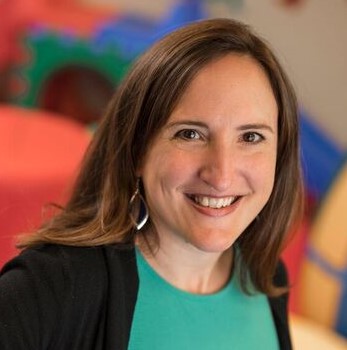
Professor of Pediatrics and Associate Director
Little Rock, Arkansas, USA
I have been fortunate to complete my PhD with Dr. Sharon Donovan who has provided me with an outstanding training in infant nutrition, lactation and gut development. Since then, I have investigated the influence of maternal phenotype on child’s health from the preconception to late childhood period. Specifically relevant to the society, we have studied how maternal phenotype and diet can influence human milk composition. We have also characterized breastfed and formula fed infants in longitudinal studies for the past 14 years to explore their unique differences in growth and development. ISRHML dedication to promoting excellence in research and providing training opportunities in the field of human milk and lactation is outstanding considering the impressive amount of work yet awaiting researchers in this area. I look forward to contributing to the society’s mission and to the field’s research through outstanding collaborations with international partners.
Aline is a Professor of Pediatrics and Associate Director of the Arkansas Children’s Nutrition Center in Little Rock, Arkansas, USA. She received her PhD in Nutritional Sciences from the University of Illinois at Urbana-Champaign with Dr. Sharon Donovan. Aline directs a research group that studies the impact of maternal and child nutrition on children growth, metabolism and body composition.
Richmond Aryeetey (Ghana)
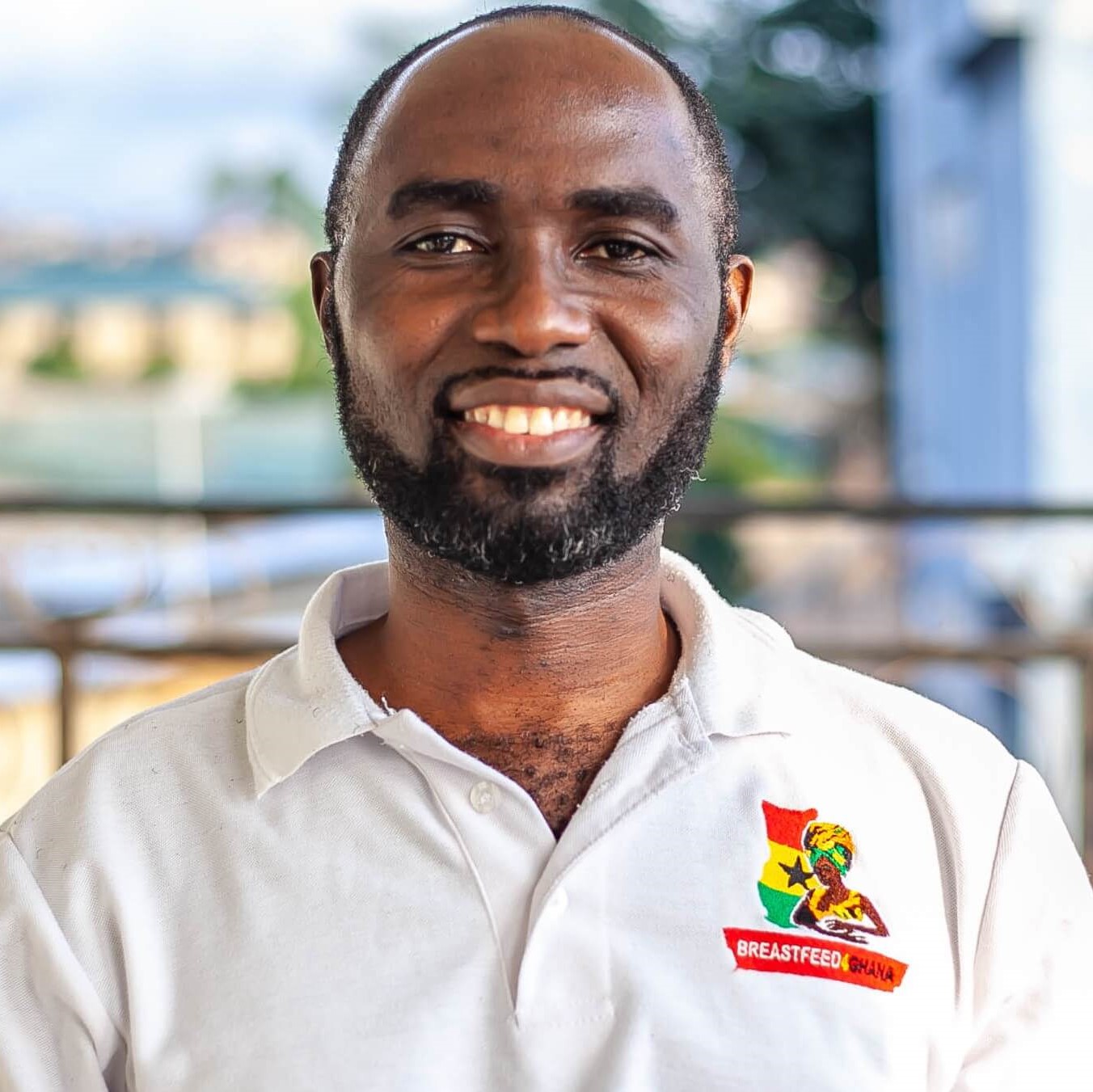
Professor of Public Health Nutrition
University of Ghana, Ghana
In the last few months, I have been privileged to serve on a committee to develop a strategic plan for ISRHML. In this plan, it is recognized that ISRHML exists to ‘enhance and leverage global excellence in human milk and lactation research through discovery, knowledge sharing, an inclusive and supportive international scholarly community, and sustained leadership’. I believe in this mission. I am particularly excited about the opportunity to contribute to ISRHML achieving this mission by advocating strongly for inclusiveness in ISRHML in a way that enables the many researchers working in breastfeeding, human milk, and lactation Sciences to know about and be an integral part of our society. I have been part of ISRHML since 2004 and more actively since 2017. I am keen to leverage this position as a voice to champion diversity and inclusiveness in ISRHML for African-based and other scientists who live and work in low-income settings like I do.
Richmond Aryeetey is a Professor of Public Health Nutrition at the University of Ghana, School of Public Health, where he has been on the faculty for 15 years. Prior to taking this position, he worked in various research roles in Ghana with the Ghana Health Service and other agencies. He holds a PhD in Human Nutritional Sciences from Iowa State University of Science and Technology as well as a Master of Public Health Degree from the University of Ghana.
During the past 22 years of his research career, he worked on multiple public health issues targeting the nutrition of women, infants and young children. An important part of his work has been focused on breastfeeding, which remains a major component of his research program since his postgraduate studies. In addition to this, he is active in research on Food systems, and nutrition systems research that directly focuses on optimizing nutrition policy through policy and political economy analysis. I has authored more than 100 peer reviewed journal articles and books/book chapters.
He had the opportunity to consult for multiple partners whose work intersect with these aspects of his research including the FAO, UNICEF, GAIN WFP, IFPRI and several others. His work has been graciously funded by multiple agencies and donors around the world including the European Commission, Global Affairs Canada, International Development Research Centre, UK Medical Research Centre, New York Population Council, Bill and Melinda Gates Foundation, Family, Larsson-Rosenquist Foundation, and the International Food Policy Research Institute among others.
During the course of his career, he has built important networks across the African Continent in various institutions of Higher Education, and research centers. He is a member of various professional societies on the African Continent and globally, including the African Nutrition Society, and the American Society for Nutrition and served in leadership positions in some of these societies. In Ghana, he was Public Relations Officer of the Nutrition Association. At the continental level, he served for four years as the Vice President and of the Federation of African Nutrition Societies and subsequently as Acting President for one year during a Leadership transition period.
Currently, he serves on various National Committees including the Salt Iodization Committee, and the SUN movement Capacity working group in Ghana. He also convenes the Academic Platform on SUN in Ghana and serves on the Executive Committee Global SUN movement.
Zoya Gridneva (Australia)
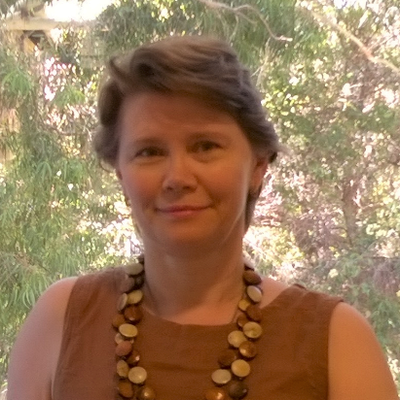
Research Associate The University of Western Australia, Australia
I have been a member of ISRHML since 2014 and have attended one conference and participated in four other conferences/workshops (abstracts below). ISRHML is a multidisciplinary society that embraces many different disciplines that continuously improve our understanding of lactation and human milk. I have studied in and am continuing to work in the large multidisciplinary and multicultural lactation research group, working with both students and research participants, so I am able to communicate well with other researchers from various backgrounds and with both expert and lay audiences. I have recently received TEP travel funding so I do have an experience in this side of ISRHML work. I would like to be on the Executive Committee to contribute to the future growth and success of the society, to help building stronger relationships within the knowledgeable ISRHML community and particularly to assist the early career researchers and researchers from other fields.
Dr Zoya Gridneva is a Research Associate at the Geddes Human Lactation Research Group, School of Molecular Sciences, The University of Western Australia. She has graduated in December 2017. Her research interests are interactions of human milk composition, infant appetite control and body composition of lactating mothers and their breastfed infants. She combines established body composition measurement techniques that are used mainly for adults (ultrasound and bioelectrical impedance spectroscopy) to improve the understanding of the effect of human milk components, concentrations and intakes, on the breastfed infant’s body composition, growth and appetite control in order to reduce both childhood and adult obesity rates.
Invited presentation
Environmental determinants of human milk composition in relation to health outcomes. ISRHML Live On-line Biennial Congress. August 2021
Abstracts
Gridneva, Z; Rea, A; Lai, CT; Tie WJ; Kugananthan, S; Murray K; Hartmann, PE; Geddes, DT. Development of visceral and subcutaneous-abdominal adipose tissue in breastfed infants during first year of lactation. ISRHML Live On-line Biennial Congress. August 2021
Gridneva, Z; Lai, CT; Geddes, DT; Rea, A; Murray K. Maternal characteristics related to milk production in mothers of term infants. ISRHML 2020 Virtual Workshop. August 2020
Geddes, DT; Gridneva, Z; Tie, WJ; Lai, CT; Hartmann, PE; Rea, A; Murray K; Ward, LC. Human milk casein and body composition of breastfeeding dyad over the first year of lactation. 19th Conference of ISRHML. Kanagawa, Japan. October 2018
Geddes, DT; Gridneva, Z; Kugananthan, S; Hepworth, AR; Ward, LC; Cannon, AM; Lai, CT; Hartmann, PE. Breastmilk appetite hormones and infant body composition. 18th Conference of ISRHML. Stellenbosch, South Africa. March 2016
Geddes, DT; Gridneva, Z; Hepworth, AR; Ward, LC; Lai, CT; Hartmann, PE. Body composition in breastfed term infants using bioimpedance spectroscopy and ultrasound skinfolds – methods comparison. 18th ISRHML Conference. Stellenbosch, South Africa. March 2016
Gay, MCL; Du, J; Gridneva, Z; Hartmann, PE; Trengove, RD; Geddes, DT; Longitudinal
study of persistent organic pollutants in human milk: do the concentrations change
during lactation? 18th ISRHML Conference. Stellenbosch, South Africa. March 2016
Geddes, DT; Cannon, AM; Kakulas, F; Gridneva, Z; Hepworth, AR; Hartmann, PE.
Exploring the effect of breastmilk leptin on gastric emptying in term breastfed infants.
18th ISRHML Conference. Stellenbosch, South Africa. March 2016
Geddes, DT; Gridneva, Z; Kugananthan, S; Mark, P; Ward, LC; Kakulas, F; Lai, CT;
Hepworth, AR. Associations between maternal body composition and leptin and
adiponectin levels in human milk. 18th ISRHML Conference. Stellenbosch, South Africa.
March 2016
Gridneva, Z; Hepworth, AR; Ward, LC; Lai, CT; Hartmann, PE Geddes, DT. Effect of milk
intake and extracellular fluid reservoirs on resistance measurements in term breastfed
infants. 17th ISRHML Conference. Charleston, USA. October 2014
Sonia Hernández-Cordero (Mexico)
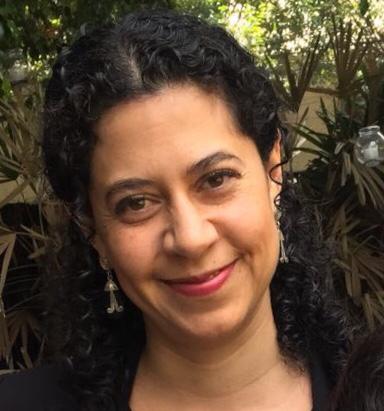
Professor
Universidad Iberoamericana, México
For many years I have followed ISRHML’s work. I am very impressed with it because I believe that the inclusion of many different disciplines, the global perspective and its interest on the development of young investigators is of paramount importance for advancing research on human milk and lactation.
Sonia Hernandez-Cordero’s experience in the field of Nutrition has been on Public Health Nutrition, mainly as a researcher and professor at undergraduate and graduate level. In the research area, both as a principal investigator and coinvestigator, she developed a research program for the translation of knowledge into evidence-based public health food and nutrition policies. Her main interest is on maternal and child nutrition, particularly breastfeeding. As such, she has collaborated with multidisciplinary national and international teams on best evidence-based approaches to develop national policies to promote breastfeeding in Mexico, that are helpful to decision makers. Other interest area in public health nutrition has been the design and evaluation of evidence-based strategies to prevent obesity, particularly in women and children. She has experience leading important research projects, including randomized clinical trials, case control and cross-sectional studies. She has an active role in the Master and Doctoral programs in Nutrition in several educational institutions.
Tricia Johnson (USA)
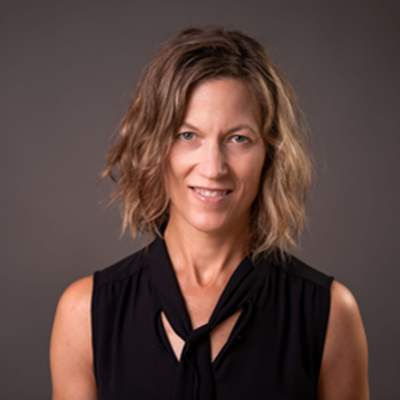
Professor, Department of Health Systems Management
Rush University, USA
Tricia Johnson is Professor and Economist in the Department of Health Systems Management at Rush University in Chicago. Her research interests focus on understanding the underlying drivers of healthcare costs and quality from an economic perspective, with a particular focus on identifying novel, low-cost strategies that simultaneously improve health outcomes and reduce long-term health care costs. She is one of the few human milk economists in the world and her research evaluates the short and long-term economic consequences of breastmilk and nutrition strategies for premature infants. Dr. Johnson is Multiple Principal Investigator (with Aloka Patel, MD) of a randomized controlled trial funded by the National Institute of Minority Health and Health Disparities to test an economic intervention aimed at reducing racial and ethnic gaps in the provision of mother’s own milk for very low birth weight infants in the neonatal intensive care unit. She is the lead economist in Rush University Medical Center’s Health Equity Research, which is currently charged with evaluating the social determinants of health associated with poor COVID-19 outcomes. Dr. Johnson teaches graduate-level courses in health economics at Rush and was selected as a Fulbright Scholar to Austria, where she spent a semester working with colleagues at the Vienna University of Economics and Business. She has a Bachelor of Arts in economics and business administration from Coe College, masters in hospital and health administration from the University of Iowa and masters and PhD in economics from Arizona State University. As a long-time member of ISRHML and having attended every ISRHML meeting since 2012, Dr. Johnson would provide invaluable input to ISRHML’s Executive Committee. Her research/scholarship focus on the economics of human milk feeding, in combination with her extensive background in finance and healthcare administration, would add a significant new perspective to the EC and its work. She has experience in championing organizational efforts to advance diversity and inclusion in research and career development and would work with the EC to continue to build inclusive, collaborative, and diverse global opportunities to exchange ideas, foster professional development and advance science. Dr. Johnson is passionate about ISRHML and its multidisciplinary research/scholarship focus and would dedicate the time and effort required to be a productive member of the EC.
As a health economist, my research interests focus on understanding the underlying drivers of healthcare costs and quality from an economic perspective, with a particular focus on identifying novel, low-cost strategies that simultaneously improve health outcomes and reduce long-term health care costs. I am one of very few human milk economists in the world and specialize in the economics and cost effectiveness of human milk feedings in premature infants. I have worked for over a decade with the Rush Human Milk Research Team to study health outcomes and cost of human milk feedings and am Multiple Principal Investigator (with Aloka Patel, MD) of Reducing Disparity in Receipt of Mother’s Own Milk in Very Low Birth Weight Infants (ReDiMOM; R01MD013969), a randomized controlled trial designed to test an economic intervention aimed at reducing racial and ethnic gaps in the provision of mother’s own milk for very low birth weight infants in the neonatal intensive care unit. Additionally, I was a co-investigator and lead economist on the original NIH R01 (NR010009; PI: Meier) grant examining the health outcomes and cost of human milk feedings for the LOVE MOM cohort (Longitudinal Outcomes of Very Low Birthweight Infants Exposed to Mothers Own Milk) of VLBW infants and have served as first author on four of the data-based peer-reviewed manuscripts from this study. In 2011, I was successful in competing for an internal ($100,000) peer-reviewed grant (Economic Model of Human Milk as a Long-Term Strategy in Extremely Low Birth Weight Infants) that allowed our NIH team to study the relationship between NICU human milk dose and neurobehavioral, health and cost outcomes for the LOVE MOM cohort through 20 months of corrected age. I am or have been co-investigator on multiple National Institutes of Health-funded projects to evaluate the cost and cost-effectiveness of interventions to improve health outcomes and was elected to full membership in the International Society for Research in Human Milk and Lactation (ISHRML). I am passionate about and committed to ISRHML’s mission to promote excellence in research and dissemination of findings in the field of human milk and lactation. I am committed to mentoring the next generation of researchers and scientists and routinely mentor students across many disciplines.
Katsumi Mizuno (Japan)
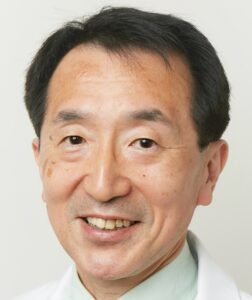
Chief Professor, Department of Pediatrics
Showa University School of Medicine, Japan
I have done research on human milk for decades, because as a neonatologist and pediatrician I would like to improve prognosis of preterm infants through research findings of human milk and to support lactating mothers to be able to enjoy breastfeeding. I have established three human milk bank (the first one has been closed due to COVID-19 pandemic) and deliver donor milk to all over Japan. Currently, I have tried to find the safe use of microwave heating.
I have been practicing neonatology since 1987 and I am chief professor of Department of Pediatrics, Showa University School of Medicine.
I have managed the Japan Human Milk Bank Association since 2017. The 2nd human milk bank, which has laboratory functions, will be established in March. We have been working on lactation physiology, biochemistry especially in milk fat/protein, and on sucking behavior of preterm infants.
Alecia-Jane Twigger (UK)

Research Associate
University of Cambridge, UK
I, Dr. Alecia-Jane Twigger, believe that research into human milk and lactation is of the upmost importance to optimise the long-term health outcomes of the mother-infant dyad. After working in lactation research for the past 10 years, it shocks me that there is still so much to uncover about the mechanisms behind milk production, and how milk varies across different populations. I hope to build a lifelong career working to improving our understanding of these aspects of human lactation. I have been a member of ISRHML since 2015 and it is exciting to see how the society has grown in this time; I look forward to supporting its continued evolution in any way that I can. I believe increasing the number of ISRHML members across all continents will lead to more inclusive and relevant studies, which will result in better health global outcomes for all breastfeeding dyads. If elected to position of Councilor in ISRHML I will do my best to promote policies that encourage cross disciplinary, inclusive, and collaborative research. I will also promote the values upheld by this organisation as I see the value and importance of it and am committed to see it continue to succeed.
Dr. Alecia-Jane Twigger is a research associate at the Wellcome-MRC Cambridge Stem Cell Institute and Department of Pharmacology at the University of Cambridge. She began her career at the University of Western Australia, where she gained her PhD examining cells in human milk. Upon completion of her studies, she received the inaugural trainee bridge fund to enable her to cross the globe to work at the Helmholtz Centre in Munich. Here she was further accepted into the Helmholtz Postdoctoral Fellowship program, working in the human mammary cell research group led by Dr. Christina Scheel. At the end of 2019 she was invited to join Dr. Walid Khaled’s research group in Cambridge where she continues her work in mammary gland biology and lactation to better understand the mechanisms of breast maturation and milk production. She is currently moving towards independence, where she hopes to build a research program that utilises scRNA-seq analysis, cell culture and human milk cells to improve our understanding of human lactation and therefore support the long-term health outcomes for the breastfeeding dyad. Alecia-Jane has been an active member of ISRHML since 2015, is a member of the ISRHML TEP scientific review board since 2019 and is on the ISRHML social media committee since 2021.
Kyly Whitfield (Canada)
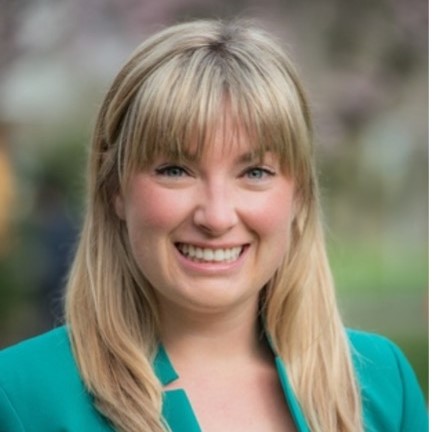
Associate Professor
Mount Saint Vincent University, Canada
I have been a member of ISRHML since 2016, and I am keen to deepen my involvement by serving as a Councilor on the Executive Committee. I’ve seen ISRHML grow, especially in supports and opportunities for trainees, over the last six years. I presented findings at meetings in South Africa, Japan, and online last year, and each time am so encouraged to see how truly international this group is. I am also impressed with the Regional Webinars, showcasing research from around the globe, timezone by timezone. As a global nutrition researcher, I hope I can support current programs, and also provide insight and work to encourage society engagement and membership growth, particularly among researchers in low- and middle-income countries. For instance, I believe engaging with adjacent groups such as the Scaling Up Nutrition’s Global Youth Nutrition Champion Program (a particularly active group in Cambodia, where I work) could allow for unique knowledge translation and/or research opportunities.
Dr. Kyly Whitfield is an Associate Professor in the Department of Applied Human Nutrition and leads the Milk and Micronutrient Assessment Lab (MAMA Lab; www.mamalab.ca) at Mount Saint Vincent University in Halifax, Canada. Kyly is passionate about maternal and infant nutrition, with interests in identifying and combating micronutrient deficiencies, and understanding feeding, during ‘the first thousand days’ window. The main facets of her research programme include combating thiamine deficiency in low-income settings, exploring responsive infant feeding in both Canada and Cambodia, and better understanding the public’s perceptions of infant feeding guidance in Canada. Kyly has engaged in research around the globe, including in Canada, Cambodia, Bangladesh, Rwanda, Uganda, and Kiribati.
As a student, Kyly was an enthusiastic ISHRML TIGer, and was awarded an ISRHML-FLRF Trainee Travel Fund award in 2018 (Whitfield & Ventura 2019 Breastfeeding Medicine 14(7):482-86). Kyly is a key member of the Global Thiamine Alliance, and was very involved in articulating the group’s latest Global Roadmap for action (Whitfield et al 2018 Ann NY Acad Sci 1430(1):3-43). She is an early career researcher with recognized research excellence: she was awarded the CIHR INMD – CNS New Investigator Partnership Prize (2020) and was the inaugural recipient of the MSVU Early Career Research Award (2019). She is an active member of the Canadian Nutrition Society, serving on the Education Committee (2017-Present) and previously on the Trainee Leadership Committee (2018-2020).
